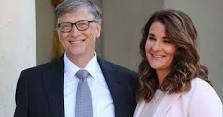Bill Gates, co-chair of the Bill & Melinda Gates Foundation, has announced that the Foundation will commit $30 million in a new artificial intelligence (AI) platform in Africa.
Gates made the announcement on Wednesday at the Grand Challenges annual meeting hosted by the Bill & Melinda Gates Foundation and its partners, in Senegal.
Grand Challenges, the Foundation’s flagship innovation programme, was launched in 2003 and focuses attention and funding on major global health and development issues affecting the world’s poorest people, using open calls for proposals to crowd-source potential solutions.
The platform was designed to provide technical and operational assistance to African scientists and innovators to enable them translate their creative potential ideas into scalable health and development solutions.
Gates explained that the programme was a step taken by the Foundation towards ensuring that the advantages of artificial intelligence are relevant, inexpensive, and accessible to everyone – particularly those in low- and middle-income countries – and that key technologies are produced safely, ethically, and fairly.
He assured that the Foundation would continue to collaborate closely with technical partners and governments to expand the platform and seek possibilities to collaborate on AI for health and development.
According to him, the investments come with an urgent call for countries to increase funding to make health and development innovation research and development (R&D) easier and faster, and to make the next generation of scientific and technological breakthroughs relevant and accessible to all.
The Bill and Melinda Gates Foundation co-chair told delegates at the meeting that while overall health R&D funding was increasing, just two percent of such funding is dedicated towards diseases affecting the world’s poorest people.
In 2020, the Foundation reported that the annual funding gap for product development targeting poverty-related and neglected diseases was estimated at $2.6 billion.
At the meeting in Dakar, Gates charged world leaders and governments to spend at least $3 billion more on global health and development R&D each year in order to close critical funding gaps for neglected diseases.
He said: “New health technologies have the potential to save millions of lives, but R&D funding is going in the wrong direction.
“Donors need to step up their commitments to ensure health innovations reach those who need them more quickly, so more lives can be saved”, Gates added.
Speaking at the forum, Senegal’s Minister for Higher Education, Research and Innovation, Moussa Balde, said: “Over the past two decades, global investments in a pipeline of innovative solutions helped reduce childhood deaths under five by half.
“But lifesaving innovations still take too long to reach those who need them and are not always designed with equity from the start.
“Grand Challenges Senegal continues to invest in the country’s brightest scientists and innovators, and we are pleased to be part of this global network of Grand Challenges partners investing in locally led solutions to ensure innovations, including in health, education, and agriculture, benefit everyone equally”, Balde added.






